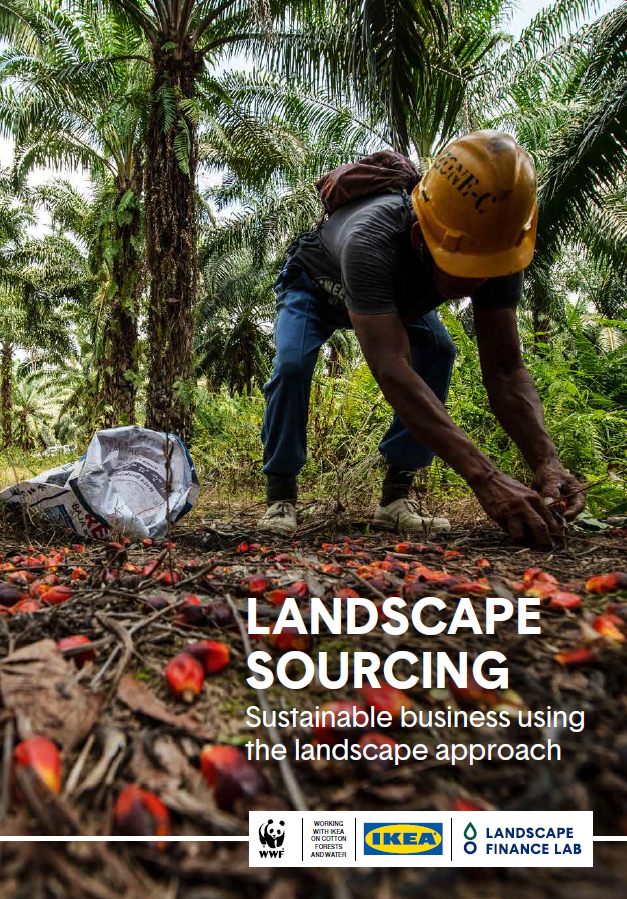Landscape Sourcing: Sustainable Business Using the Landscape Approach
As environmental pressures intensify, companies are facing looming threats regarding the reliability, quality and quantity of supply chain inputs. Forward-thinking companies have recognised that the environmental and social impact of their operations cannot be solved by site-based approaches alone. Landscape approaches can address these important gaps in sustainability planning by taking a more holistic methodology.
This report makes a case for how the business sector can support, and benefit from, landscape approaches as a supplement to promoting sustainability within supply chains. Specifically, the authors define landscape sourcing as product sourcing that contributes positively to the goals of a sustainable landscape through credible product certification coupled with consideration of social and ecological implications of management at landscape scale.
While committing to a landscape approach is a serious decision for any business, the authors believe there are sound arguments to support this concept, including:
- Engaging a wider set of stakeholders who can support successful businesses
- Sharing and thereby reducing costs that would be higher if bourne independently
- Reducing brand and reputation through addressing unsustainable practices and preventing bad publicity associated with them
- Jointly tackling ecosystem risks that can impact company assets and operations – such as water failure, floods, soil erosion or wildfire
- Avoiding “leakage” of impacts from one site or ecosystem to another
- Addressing issues which need combined action and cannot be solved at site-based level alone such as: legislative and regulatory needs; vulnerability from poorly planned or insufficient infrastructure; and ensuring shared services
- Increasing access to larger-scale public funding and private investment
